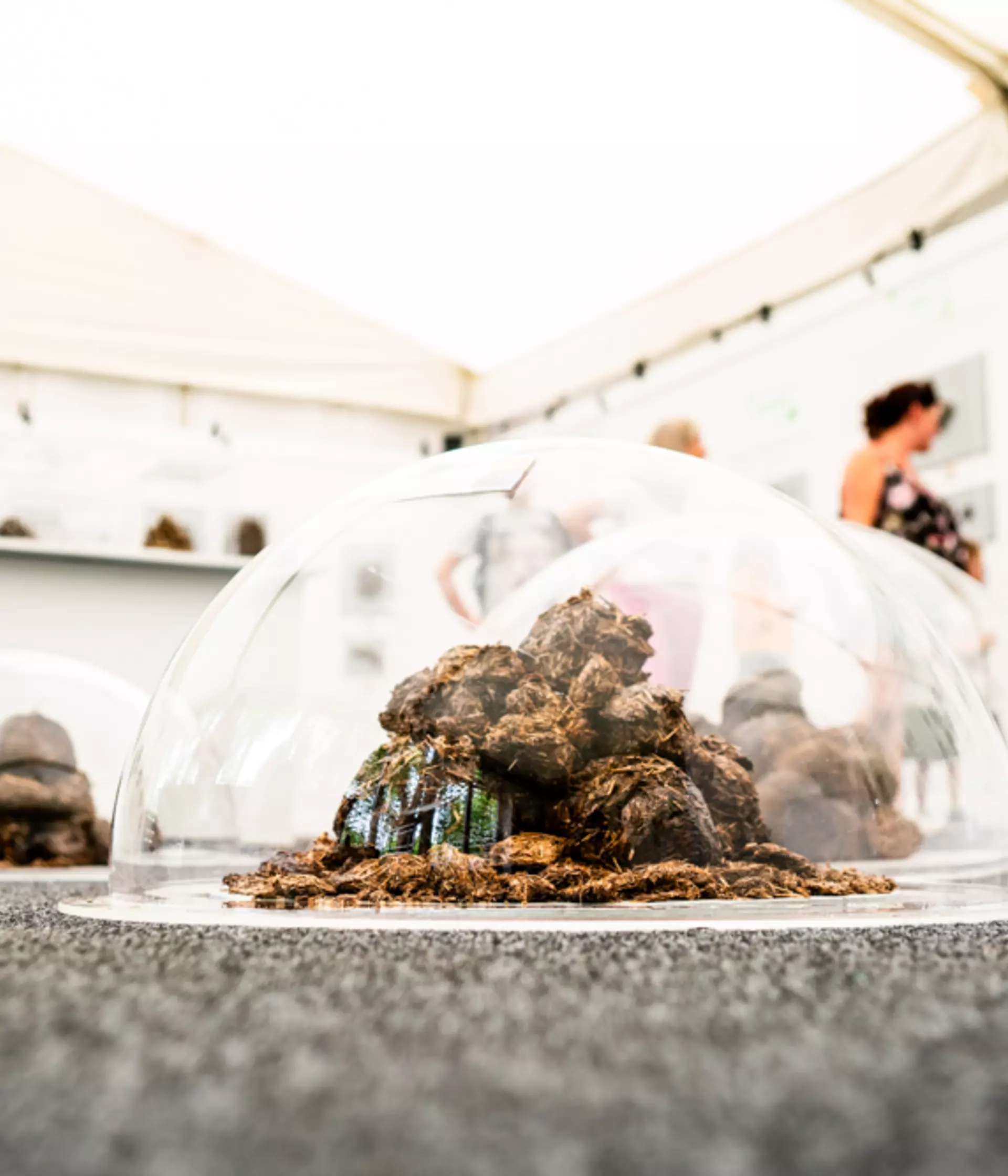
Get down and dirty with some fascinating facts about animal poop!
From the biggest to the smallest, from the smelliest to the strangest, we’ve got the scoop on animal poop.
Prepare to be amazed, intrigued, and maybe even a little grossed-out as we take a closer look at some of the most incredible facts about animal poo!

Poo Fact #1
Bats spend a lot of their time hanging upside down, which could make pooping messy job. Luckily bats make sure to poop when they are right way up, usually when they are flying but some bats will also stand perched on an object to poop.
Poo Fact #2
Compared to their size giraffe poo is pretty tiny. Giraffes digestive systems make sure to take all the nutrients out of their food so all that is left is a tiny marble-sized ball of poo.
Poo Fact #3
Otter poo is called ‘spraint’ which is a word from the Old French espraintes language meaning ‘to squeeze out’. They leave their poop in places along river banks and rocks to mark out their territory. It is usually dark green, slimy and has a distinct fishy smell.
Poo Fact #4
Humboldt penguins are one of the most frequent poopers in the world, going on average 6-8 times an hour. In fact, colonies of penguins can produce so much poo that it can be seen by satellites in space. This has been helpful for scientists as it means they are able to remotely track and monitor colonies all over the world.
Not only is penguin poo plentiful, it’s also useful! Penguin guano is full of useful compounds such as nitrogen and phosphorus, in the past it has been used as a fertilizer and even mined to make into gunpowder.
Poo Fact #5
Sloths spend most of their time hanging around in trees but they come down to the ground once a week or so to poo. Sloths often get constipated so they do a little “poo dance” to help get things moving. Since they wait so long in between toilet breaks, their poo can weigh as much as one-third of their body weight each time they go!
Poo Fact #6
Honeybees don’t do their first poo until they are adults. Bees start off life as larvae and store all of their poop in something called their blind gut until they have grown into their adult form. They then do their first poo on their first flight out of the nest.
Poo Fact #7
To keep themselves safe from becoming a bigger dragons lunch, young komodo dragons learn to stay up in the branches of trees until they are large enough to protect themselves. But just in case that's not enough they'll also roll around in their poop as an extra stinky layer of protection to make sure no one fancies them as a snack!
Poo Fact #8
Insect droppings are known as 'frass' and surprisingly a lot of insects have been toileting habits that some of our larger animals! In leafcutter ant colonies everyone has a job to make sure things run smoothly. Some ants will spend their whole lives being the designated poop scoopers, making sure that the frass is moved out of the colony to keep their home clean and hygienic.
Poo Fact #9
Elephants love to eat a lot of plant material but their digestive system isn't that effective at breaking it all down. Elephant dung has so much fibrous leftover plant material in it that it can be turned into all sorts of useful things such as paper. In fact the average elephant poops enough to produce over 100 sheets of paper a day!
Poo Fact #10
Hippos like to use their poop to mark out their territory, but they don't leave neat little piles on the riverbank. When they go to the toilet a hippo will move their tail like a windscreen wiper to make sure that their poo gets flung as far as possible to leave a stinky warning sign to others.
Poo Fact #11
Vultures spend a lot of time in the wild digging around in animal carcasses so they probably aren't that bothered about germs right? Vulture poo is highly acidic which makes it super effective at dissolving harmful bacteria, once a vulture has finished digging around for a meal in a carcass it'll poop on its own legs to act as an antiseptic wash!
Want to learn even more about manure, get the grubby details on guano or find out more about frass?
Join us for Poo at the Zoo and check out our Poodunnit book in our online shop.
